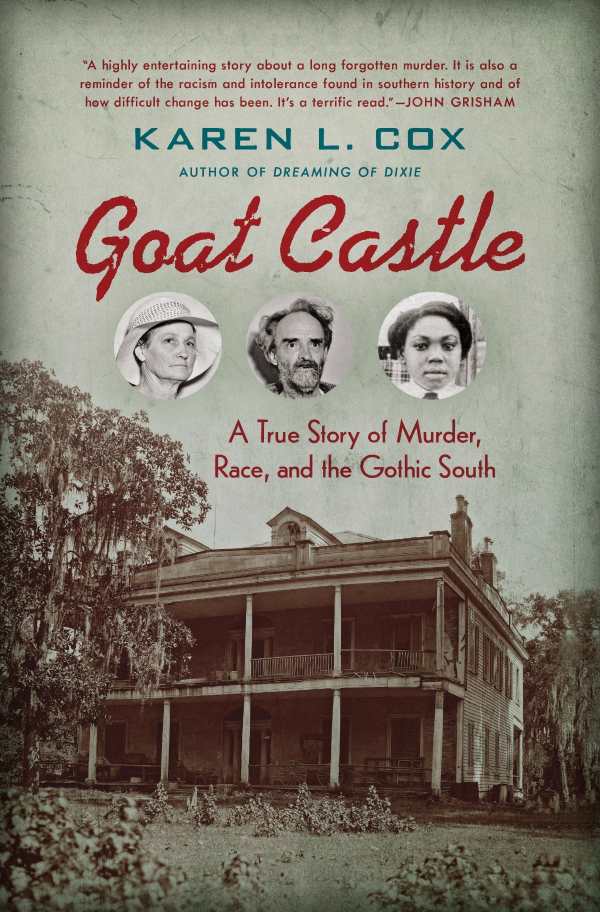
Goat Castle
A True Story of Murder, Race, and the Gothic South
This riveting true-crime exploration highlights the relationship between race and the law in the post-Civil War South.
Karen L. Cox’s Goat Castle: A True Story of Murder, Race, and the Gothic South translates historical facts into an intimate narrative of poverty, race, and the politics of the post-Civil War South.
Goat Castle revives a true-crime case that first gripped the nation in 1932. Jennie Merrill, a remnant of the wealthy planter class in the South, was murdered and her house ransacked. The text begins with an overview of Merrill’s murder and the factors that made the case a national sensation.
There are two major narratives. The first is that of Dick Dana and Octavia Dockery, whose eccentric lifestyle and participation in the murder drove the sensational aspects of the case. The second is that of Emily Burns, the innocent African American woman who was charged and imprisoned for the crime. These two narratives are told against each other to emphasize how racism influenced the perception of, and fallout from, Merrill’s murder.
While Goat Castle does focus on the technical aspects of the case, such as dates, timelines, and the evidence, the narrative is structured around the people involved and their motivations. This approach humanizes the case and the people, particularly Emily Burns.
Although Goat Castle is nonfiction, its subjects are treated almost as if they are characters. Motivations and inner thoughts such as these are sprinkled throughout the book: “Octavia may not have liked Jennie Merrill, but she had not fathomed that the plan to rob her would have ended so horribly,” and “Sister knew all too well that freedom could be fleeting.” While this adds drama, it also sometimes chafes against the believability of the text.
Historical documents are referenced in footnotes more often than they are quoted, almost as if the text is unwilling to weigh the pages with the painstaking proof gathered for its construction. Still, the choice leads to an uninterrupted narrative flow within an enjoyable work.
Goat Castle is a riveting exploration of a true crime that illuminates the complicated relationship between race and the law in the post-Civil War South.
Reviewed by
Clarissa Goldsmith
Disclosure: This article is not an endorsement, but a review. The publisher of this book provided free copies of the book to have their book reviewed by a professional reviewer. No fee was paid by the publisher for this review. Foreword Reviews only recommends books that we love. Foreword Magazine, Inc. is disclosing this in accordance with the Federal Trade Commission’s 16 CFR, Part 255.
